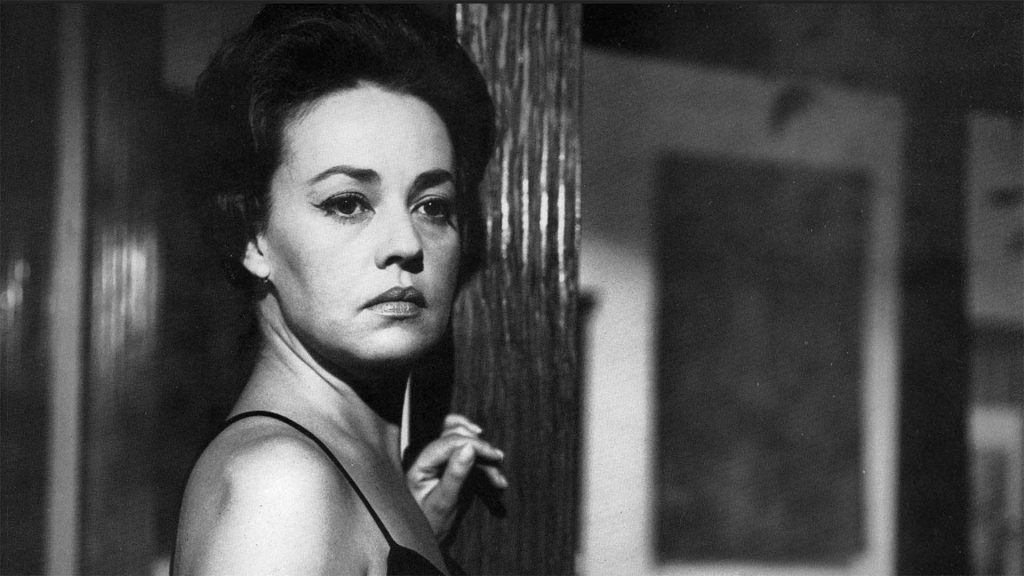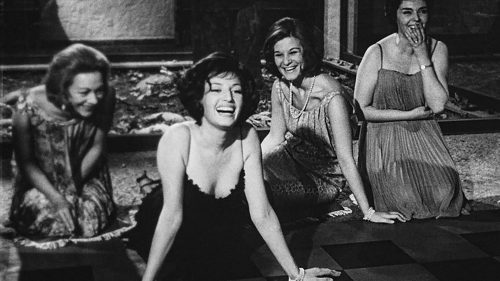
The bad girl of French cinema and an icon. Her face, her expression, her untamed, rebel spirit that was the essence of her soul and set her apart among the many who performers who made history in the country that invented cinema. Catherine Deneuve’s statuesque visage, Juliette Greco’s piercing eyes, Fanny Ardant’s totalizing charm are what remind most obviously of each of them. In Jeanne Moreau’s case, instead, her irrepressible unruliness makes her one of a kind, a person who can revoutionize the rules of the game which, until only a few decades ago, forced women into canons and stereotypes they couldn’t break free from.
Ever since her debut, behind the familiar, even stereotypical image of a happy, confident girl, Jeanne Moreau showed her unmistakable expressions, a face that makes you stand on your toes. Again, behind roles that are apparently clichéd, something reacted, something just didn’t want to adapt, and yet something in turn adaptable to the needs of the filmmaker. Moreau worked with some of the greatest filmmakers of the twentieth century: Orson Welles, Jospeph Losey, the lamented François Truffaut, Theo Angelopoulos, and the great Luis Buñuel.
Angry, austere, loving, sweet, dark, threatening, friendly, untamed, restless. In one word: unyielding.

A bourgeois couple wanders through Milanese clubs and high-society parties in search of something that has long since vanished. He, a writer, becomes infatuated with the twenty-year-old daughter of an industrialist who wants to hire him to write a book about his com...
A maid leaves Paris to work in a house steeped in malaise and hypocrisy. What you see is never what you get, and never what should be. Pure Buñuel.
A thrilling road movie that feels like split in episodes, whose protagonist is a heroine like only Truffaut could imagine. This is what Jeanne Moreau’s peak performance looks like. Justice (or revenge?) has been served.
How can the whirlwind of history tear apart the life of anyone, even that of a frigid art collector? An amazing Delon/Moreau duo in a Paris ravished by war and human dryness.
Each man kills the thing he loves once sang Lysian – how true. Fassbinder killed himself in his posthumous oeuvre, a hotbed of bodies and torment where we see, quite clearly, death hard at work.